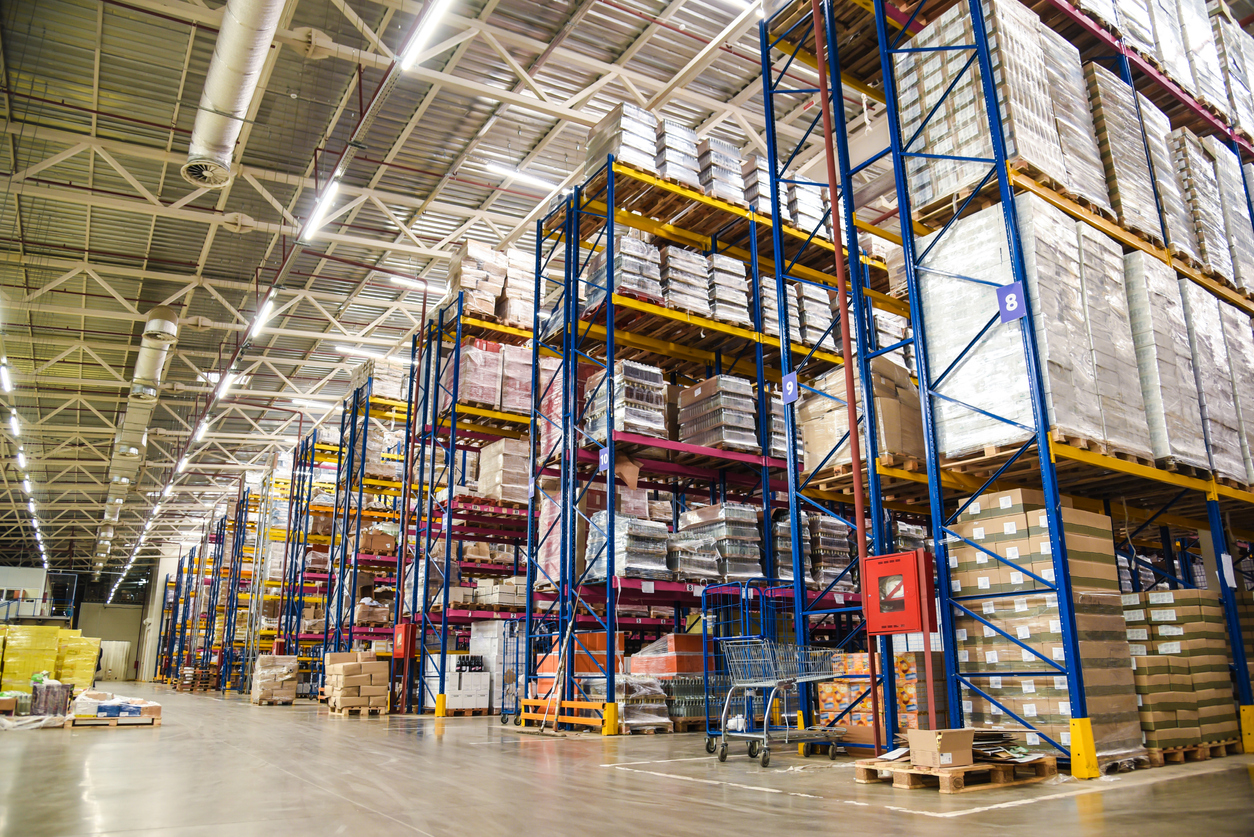From Farm to Table: Exploring the Role of Wholesale Food Stores in the UK’s Food Supply Chain
From Farm to Table: Exploring the Role of Wholesale Food Stores in the UK’s Food Supply Chain
Are you curious about where your food comes from? Do you wonder how it goes from the fields to your table? Join us on a fascinating journey as we delve into the role of wholesale food stores in the UK’s food supply chain. From bustling markets to modern distribution centers, we’ll uncover the hidden world behind those fresh fruits, succulent vegetables, and mouthwatering delicacies that grace our plates. Get ready to discover the secrets of farm-to-table dining and gain a new appreciation for the vital role played by these wholesale heroes in ensuring we have access to quality, sustainable produce all year round.
Introduction to the UK’s Food Supply Chain
Introduction to the UK’s Food Supply Chain
The United Kingdom’s food supply chain is a complex and intricate system that involves various stages, processes, and players in order to get food from the farm to our tables. From farmers to distributors, wholesalers, retailers, and consumers, each step in the supply chain plays a crucial role in ensuring that we have access to safe, high-quality, and affordable food.
In this section of our blog series “From Farm to Table,” we will be exploring the different aspects of the UK’s food supply chain with a specific focus on wholesale food stores. We will delve into how these stores fit into the broader picture of the supply chain and their impact on both producers and consumers.
Understanding the Food Supply Chain
Before we dive into wholesale food stores, it is important to have a basic understanding of how the overall food supply chain works. The process begins with farmers who grow crops or raise livestock for commercial purposes. These are then sold or traded to processors who transform them into finished products such as meat, dairy products or packaged goods.
From there, products are typically transported by distributors or wholesalers who act as intermediaries between producers and retailers. Wholesalers purchase large quantities of goods from producers at discounted prices and then distribute them to smaller retailers such as grocery stores or restaurants.
What Are Wholesale Food Stores?
Wholesale food stores, also known as cash and carry stores, are retailers that sell large quantities of products to businesses and individuals at discounted prices. These stores play a crucial role in the UK’s food supply chain by connecting farmers and producers with restaurants, caterers, retailers, and other food service providers.
One of the primary functions of wholesale food stores is to purchase fresh produce directly from farms or suppliers in bulk quantities. By buying in large volumes, these stores can negotiate lower prices and pass on those savings to their customers. This allows businesses to access high-quality ingredients at competitive prices, which ultimately benefits consumers who enjoy delicious meals prepared with fresh ingredients.
In addition to fresh produce, wholesale food stores also offer a wide variety of other products such as dairy products, meats, dry goods, frozen foods, and beverages. This comprehensive range of items makes it easier for businesses to source all their necessary ingredients from one place rather than having to deal with multiple suppliers.
Moreover, wholesale food stores provide a convenient way for small businesses to access products that may not be readily available in smaller quantities through traditional retail channels. For instance, specialty ingredients or hard-to-find items can often be found at these stores in larger quantities at affordable prices.
The Importance of Wholesale Food Stores in the UK’s Food Supply Chain
The UK’s food supply chain is a complex network that involves various stages and processes to ensure that food is produced, processed, distributed, and ultimately reaches the end consumer. At the heart of this system are wholesale food stores, which play a crucial role in bridging the gap between producers and retailers. In this section, we will explore the importance of wholesale food stores in the UK’s food supply chain.
1. Connecting Producers with Retailers:
Wholesale food stores act as intermediaries between farmers and retailers by purchasing goods in bulk from producers and selling them to retailers at discounted prices. This direct link eliminates multiple layers of middlemen, reducing costs for both producers and retailers. It also allows small-scale farmers to access larger markets that they would not have been able to reach otherwise.
2. Ensuring Food Safety Standards:
One of the primary responsibilities of wholesale food stores is to ensure that all products meet strict safety standards before being sold to retailers or restaurants. They conduct rigorous quality control checks on all incoming produce, including checking for freshness, proper storage conditions, and compliance with regulatory standards. These measures help maintain high levels of food safety throughout the supply chain.
How Do Wholesale Food Stores Source Their Products?
Wholesale food stores play a crucial role in the UK’s food supply chain by connecting farmers and producers with retailers and consumers. These stores act as a central hub for sourcing, storing, and distributing various types of food products to retailers such as supermarkets, restaurants, and independent shops.
But how do wholesale food stores source their products? Let’s take a closer look at the process involved in this aspect of their operations.
1. Directly from Farmers and Producers
The primary source of products for wholesale food stores is directly from farmers and producers. This direct relationship between the store and the supplier allows for better control over product quality, pricing, and availability.
Wholesale food stores often work closely with local farmers to source fresh produce such as fruits, vegetables, grains, meat, dairy products, and more. This not only supports the local economy but also ensures that customers have access to locally grown or produced goods.
2. Through Food Brokers or Agents
Another way wholesale food stores source their products is through intermediaries such as food brokers or agents. These professionals act as middlemen between producers and buyers by helping to negotiate deals on behalf of both parties.
Food brokers have extensive knowledge about the industry and can assist wholesalers in finding reliable suppliers who can meet their specific needs regarding quality standards, quantity requirements, delivery schedules, etc. They also help negotiate prices to ensure that both parties get a fair deal.
Challenges Faced by Wholesale Food Stores in the UK
Wholesale food stores play a crucial role in the UK’s food supply chain, acting as intermediaries between farmers and producers and retail stores or restaurants. They purchase large quantities of fresh produce, packaged goods, and other food items directly from suppliers and then sell them to smaller retailers or consumers. While this may seem like a straightforward process, wholesale food stores face numerous challenges that impact their operations and ultimately, the UK’s food supply chain.
One of the main challenges faced by wholesale food stores in the UK is maintaining consistent product quality. With such large quantities of food being purchased from various suppliers, it can be difficult for wholesalers to ensure that every single item meets high-quality standards. This is especially true for perishable items such as fruits and vegetables which have a shorter shelf life. Wholesalers must carefully inspect each batch of products they receive to make sure they are fresh and meet safety regulations. Any spoiled or low-quality products can lead to significant losses for both the wholesaler and their customers.
Another challenge that wholesale food stores face is managing inventory levels effectively. As mentioned earlier, these stores deal with large volumes of goods on a daily basis which means they must have adequate storage space available at all times. However, finding the right balance between having enough stock to meet demand while also minimizing waste can be tricky. If wholesalers overstock on certain products, it can result in spoilage or expired goods which again leads to financial losses.
Impact of Wholesale Food Stores on Local Farms and Suppliers
The rise of wholesale food stores in the UK has significantly impacted local farms and suppliers, leading to both positive and negative consequences. On one hand, these stores provide a unique opportunity for farmers and suppliers to reach a larger market and increase their profits. On the other hand, many argue that these stores have contributed to the decline of small-scale farming and have disrupted traditional supply chains.
One of the main impacts of wholesale food stores on local farms is the increased demand for large quantities of produce at lower prices. These stores often require farmers to meet strict standards and provide consistent supply throughout the year, which can be challenging for small-scale operations. This has forced many local farmers to scale up their production in order to meet the demands of these stores.
While this may bring in more revenue for farmers initially, it also comes with added costs such as investing in larger equipment, hiring more labor, and using more resources. This can be especially difficult for small family-run farms that may not have the financial means or resources to expand their operations. As a result, many traditional farms are being pushed out of business due to competition from larger industrialized farms that are better equipped to meet the demands of wholesale food stores.
Another impact is the homogenization of products offered by wholesale food stores. In order to maintain consistency and quality standards demanded by these retailers, farmers are often required to grow certain varieties or breeds that may not necessarily be native or traditional to their region.
Advantages and Disadvantages of Buying from Wholesale Food Stores
Advantages:
1. Cost Savings: One of the biggest advantages of buying from wholesale food stores is cost savings. These stores offer products in bulk at discounted prices, making it a cost-effective option for consumers and businesses alike. As these stores deal with large quantities, they are able to negotiate better deals with suppliers and pass on those savings to their customers.
2. Variety and Convenience: Wholesale food stores offer a wide range of products from different brands and suppliers, giving customers more options to choose from. This makes it convenient for people who need to purchase large quantities of ingredients or supplies for events or businesses.
3. Freshness: Most wholesale food stores have a high turnover rate, meaning that products are constantly restocked and replaced with fresh ones. This ensures that the produce is always fresh and has a longer shelf life compared to regular grocery stores.
4. Support Local Farms: Many wholesale food stores work directly with local farmers and producers, providing them with a direct market for their goods. By purchasing from these stores, customers are not only supporting local businesses but also promoting sustainability by reducing the carbon footprint associated with transportation of goods.
5. Bulk Buying Benefits: Buying in bulk can be advantageous in many ways – it reduces packaging waste, saves time spent on frequent trips to the grocery store, and minimizes the chances of running out of essential items.
Sustainable Practices and Initiatives in Wholesale Food Stores
Sustainable practices and initiatives in wholesale food stores play a crucial role in ensuring the sustainability of the UK’s food supply chain. These stores act as an important link between the farmers who produce the food and the retailers who sell it to consumers. Therefore, their adoption of sustainable practices is essential for promoting ethical and environmentally responsible practices throughout the entire supply chain.
One of the key sustainable practices in wholesale food stores is sourcing locally produced goods. By sourcing products from local farmers, these stores reduce their carbon footprint by minimizing transportation emissions. Additionally, buying from local producers supports the local economy and promotes a stronger sense of community.
Many wholesale food stores have also implemented packaging reduction efforts to minimize waste. This includes using eco-friendly packaging materials such as biodegradable or reusable containers instead of single-use plastics. Some stores have even introduced zero-waste policies, where customers are encouraged to bring their own containers for bulk purchases.
Another important initiative is supporting sustainable farming methods. Wholesale food stores can work closely with farmers to promote environmentally friendly techniques such as organic farming, crop rotation, and water conservation methods. By encouraging these practices, they not only support sustainable agriculture but also provide consumers with healthier and more nutritious products.
In addition to promoting sustainable farming methods, many wholesale food stores have also started offering a wider range of plant-based options. The production of animal products has a significant impact on the environment through greenhouse gas emissions and deforestation for feed crops.
Future Outlook for Wholesale Food Stores in
Future Outlook for Wholesale Food Stores in the UK
The wholesale food industry in the UK has been steadily growing over the years, with an increasing demand for fresh and local produce. This trend is expected to continue in the future, making wholesale food stores a vital part of the country’s food supply chain.
Technology Advancements
One of the major factors that will shape the future outlook for wholesale food stores is technology. With advancements in e-commerce and logistics, these stores are now able to reach a wider customer base and provide a more efficient service. Online ordering systems have made it easier for customers to access a vast range of products from different suppliers, while also tracking their orders and deliveries.
In addition, technological innovations such as automated warehouses and delivery drones could potentially revolutionize how wholesale food stores operate. These developments can improve efficiency and reduce costs, ultimately benefiting both the store owners and customers.
Sustainability
Another aspect that will play a significant role in shaping the future of wholesale food stores is sustainability. With increasing awareness about environmental issues and consumer preferences shifting towards sustainable products, wholesale food stores will need to adapt accordingly.
This means sourcing products from local farmers who use environmentally friendly practices, reducing packaging waste by implementing more eco-friendly options, and improving transportation methods to minimize carbon emissions.
Collaboration with Local Producers
Wholesale food stores have always played an essential role in connecting farmers with businesses or consumers who require bulk purchases of fresh produce.








Comments are closed.